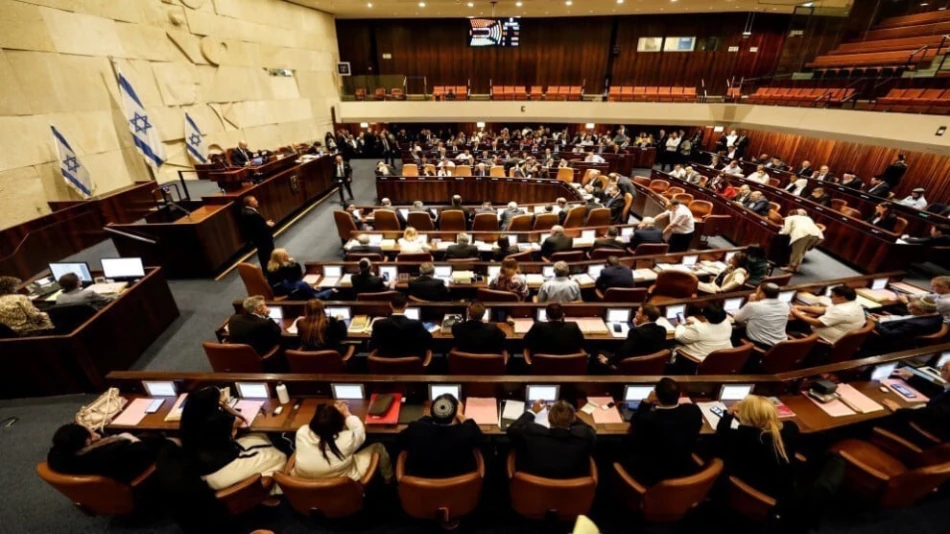
Israeli Parliament Committee Advances 'Prisoner Execution' Bill in First Reading
Israel's Knesset National Security Committee voted Monday to advance a controversial death penalty bill targeting Palestinian prisoners, despite legal warnings and concerns it could harm efforts to free Israeli hostages held in Gaza. The bill passed the first reading with just four votes in favor and one against, but faces significant hurdles before becoming law.
The proposed legislation, called the "Death Penalty for Terrorists Law," was introduced by Limor Son Har-Melech from the far-right Otzma Yehudit party. The Times of Israel reported that the committee forwarded the bill to a full Knesset vote, marking a significant step in what has become a heated political debate.
But here's where it gets complicated. The committee's legal advisor, Ido Ben Yitzhak, warned that the vote itself might be illegal since it happened during a Knesset recess. He pointed out that security officials weren't present and there wasn't proper discussion about the bill's details.
Gal Hirsch, who handles hostage affairs for the Prime Minister's office, raised another concern during the discussions. He worried that passing this law could put Israeli hostages in Gaza at greater risk and make it harder to negotiate their release.
This isn't the first time this bill has come up. The ruling coalition previously rejected it because of fears it would damage hostage negotiations. The timing is particularly sensitive given that dozens of Israelis remain captive in Gaza following the October 7 attacks.
Israel currently has the death penalty on its books but rarely uses it. The country has only executed two people in its history - Nazi leader Adolf Eichmann in 1962 and army captain Meir Tobianski in 1948, though Tobianski was later posthumously pardoned.
The bill still needs to pass two more readings in the full Knesset before it becomes law. Given the narrow committee vote and the legal concerns raised, its path forward remains uncertain. Opposition parties and some coalition members have expressed doubts about both the timing and the substance of the proposal.
For Palestinian prisoners and their families, the vote represents a troubling escalation. Human rights groups have long criticized Israel's treatment of Palestinian detainees, and this bill would mark a significant shift in how the country handles such cases.
The debate reflects broader tensions within Israeli society about how to respond to the ongoing conflict while managing the delicate hostage situation in Gaza.
Most Viewed News

 Sara Khaled
Sara Khaled






